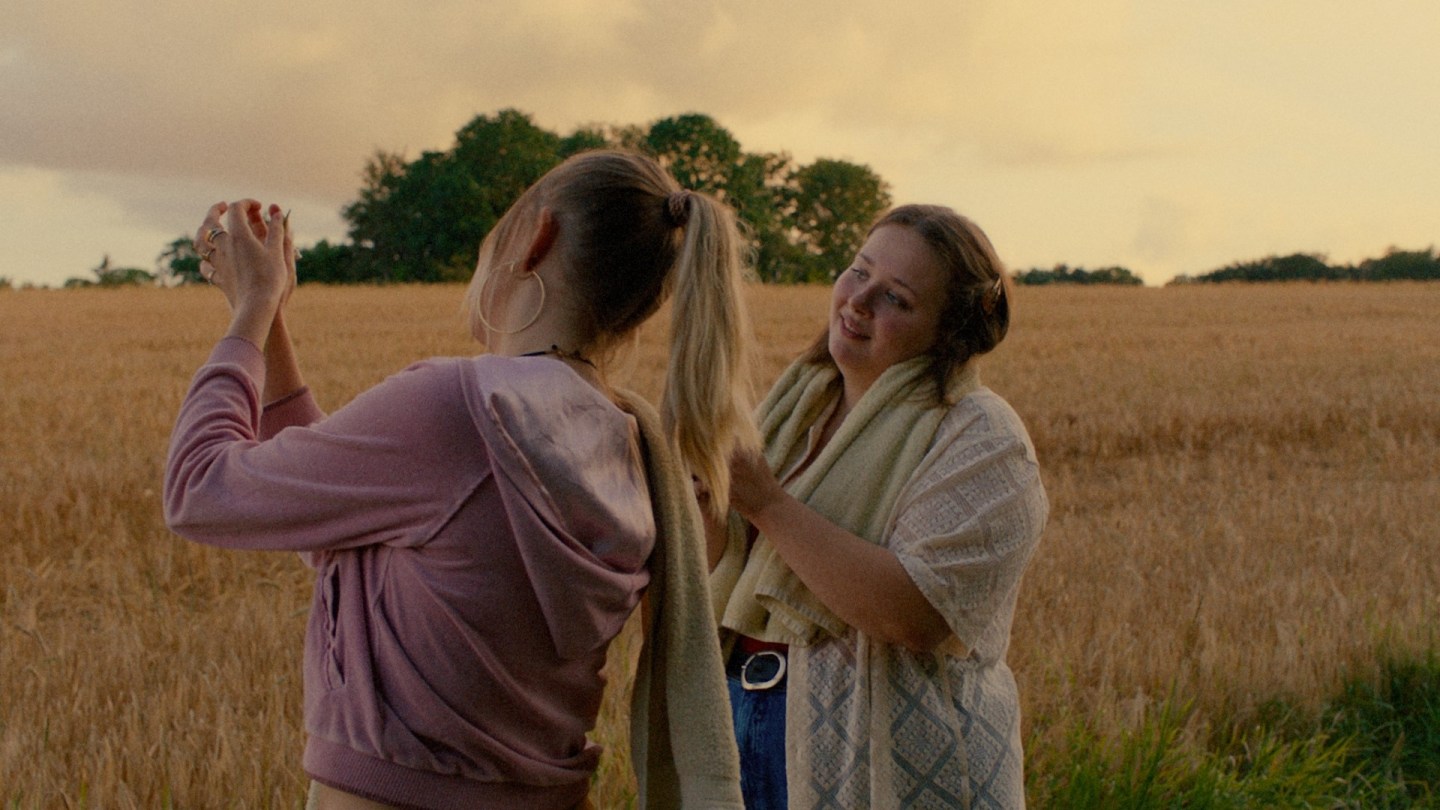Danish teenager Lea (played with remarkable maturity by Marie Helweg Augustsen) learns a lot more at a summer fat camp than just how to eat balanced meals and exercise right in Weightless, an audacious but sensitive feature debut from director Emilie Thalund.
Some viewers will immediately spot the plot’s bare-bones similarity to Ulrich Seidl’s 2013 work Paradise: Hope, not to mention Catherine Breillat’s Fat Girl and many another explorations of teens with low self-esteem discovering sexual desire in themselves and others. However, Thalund and screenwriter Marianne Lentz imbue the set-up with a fresh 2025 perspective while attuning the material to a very particular Danish frequency in a society perpetually triangulating between child-centric educational approaches, permissiveness and conformity. The film took home the top prize for the New Directors’ strand at this year’s San Sebastian Film Festival.
Weightless
The Bottom Line
Freshens up well-worn formulas.
Venue: San Sebastian Film Festival
Cast: Marie Helweg Augustsen, Ella Paaske, Joachim Fjelstrup, Jessica Dinnage, Max Vorreiter Jensen, Zere Celik
Director: Emilie Thalund
Screenwriter: Marianne Lentz, based on an idea by Emilie Thalund
1 hour 36 minutes
As the story opens, we see Lea arriving at the summer camp with her mother (Julie Thalund) and little brother (Joel Hesse Johansen). She gets a full physical and the all-important weigh-in to set a benchmark against which to measure her weight going forward. Her mom, a woman of plus-size proportions herself, is keen to emphasize that coming to this camp was Lea’s own idea, and that Lea herself wants to lose weight to get healthier.
It’s interesting that at no point does anyone mention the possibility of Lea taking a weight-loss drug like Ozempic or Wegovy, medication invented by local company Novo Nordisk and which at the moment are the biggest things to come out of Denmark since LEGO or Hans Christian Andersen. (And yes, these drugs apparently can be prescribed for teenagers in Denmark and the EU.) Presumably, this camp is committed to helping kids lose weight the old-school way, with tightly portion-controlled meals (candy and cookies are strictly prohibited) and plenty of exercise.
Lea is assigned to share a room with Sasha (Ella Paaske), a young woman her age who doesn’t seem to have a weight problem but has been parked at the camp because she’s been in too much trouble lately. Per Sasha, she’s a “bad influence” on others according to her school, and her parents seem at their wit’s end with her, especially after her fling with a much older man.
When fully adult camp counsellor Rune (Joachim Fjelstrup) starts taking a special interest in both Sasha and Lea’s welfare, dropping in at their room to chat to them, it’s clear he’s walking on much thinner ice. Moreover, Lea soon develops romantic feelings for him, revealed by the way she giggles uncontrollably at every goofy thing he says and even spying on him having a shower when the curtain of his own room is left (accidentally? on purpose?) ajar.
In one of several clever bits of scripted wrongfooting of the viewer, we’re led to worry that poor Lea is going to get her heart broken when Rune pursues more conventionally attractive Sasha. In fact, it is Lea he’s interested in, as shown in a very icky scene where he makes his move, the sort of thing most American-made movies probably wouldn’t even show. But Thalund and the cast play the material, choreographed with an intimacy coordinator, with just the right amount of finesse so that it’s neither eroticized nor editorialized. Instead, the scene’s focus is on Augustsen’s expressions, which run the full gamut of surprise, alarm, confusion, and just a hint of excitement as it’s clear she thinks that this will be the start of an affair just like Sasha had.
Meanwhile, Thalund and Lentz explore the complexity of female friendships through the ever-shifting dynamic between Lea and Sasha, a power struggle/fight for survival/Platonic courtship dance far more complicated than anything going on between Lea and Rune. Clearly a bit of a minx and well-used to being the top girl in most social situations, Sasha uses Lea for her own purposes at times, especially when they sneak off to go drinking in the woods with some local teenage boys one night who cruelly tease Lea. Much to Sasha’s chagrin, Lea stands up for herself when she’s finally had enough, and the dynamic shifts again between them from bully-and-victim to something much more like friends over the course of the narrative.
Ultimately, viewers may find themselves divided over the low-key way the film wraps it all up, opting for an ending that’s both entirely credible but also a damp squelch in dramatic terms. Moreover, reactions may vary depending on whether a viewer was ever a teenage girl, overweight or sexually abused — or perhaps all of the above. Certainly, the film doesn’t deliver any rousing sense of justice like in, say, director Jennifer Fox’s child-abuse-story The Tale. But then this is a different sort of story in a very different set of hands, told with empathy but also a certain clinical, detached inscrutability.

